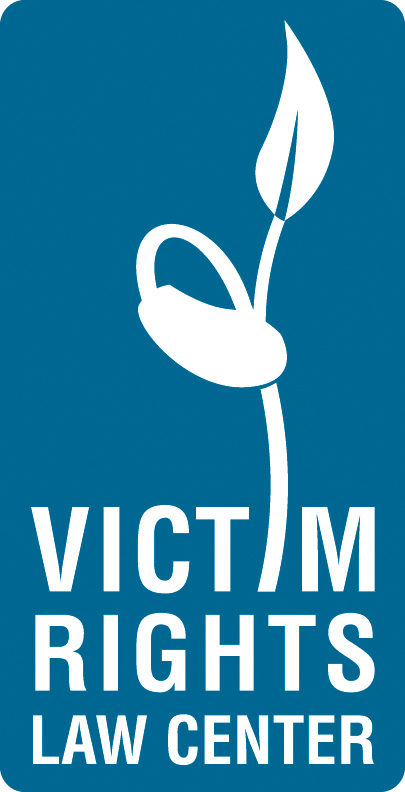How VRLC Can Help
We are here for you.
Here are some examples of how VRLC may be able to help.
Privacy
We can work with you to try to keep your personal information private.
If something is private, you might not want other people knowing it. In a criminal case, the person who hurt you will have a lawyer. That lawyer may try to get your private information. This could be information your doctor, school, or someone else has about you. We may be able to help keep your personal information private.
We can talk about how to protect your privacy in all areas of your life, such as at school, work, a program, and in the courts.
If you have a legal case in court or a hearing at your school, you may be worried about whether someone will be able to talk or ask about your sexual history without your permission. This depends on the kind of legal case that you have, the issues in the case, and what the person who is deciding the case wants to hear about. Different rules apply in different kinds of cases. Please call us if you are worried about this happening.
We can also talk to you about how to keep your information private online.

Safety
If you have been raped or sexually assaulted, you may feel unsafe.
You may want a restraining order from a court. That order would say that the person who hurt you must stay away from you and not hurt you again.
Not following the order is also called violating the restraining order. If the person who hurt you violates the restraining order, if you call the police, they may be arrested. The person who hurt you may also have to go to court on criminal charges for violating the order.
VRLC may be able to help you ask a court for a restraining order. We may also be able to help you talk to the judge when you go to court for a restraining order.
Getting a restraining order does not guarantee that the person who hurt you will stay away from you. If the person who hurt you ignores the order, you may need to also try other safety measures. VRLC can help you think about safety planning.
Getting a Restraining Order in Massachusetts
In Massachusetts, there are two kinds of restraining orders:
- A 209A Abuse Prevention Order helps people who have been hurt by someone who they live with, by someone in their family, or by an intimate partner.
- A 258E Harassment Prevention Order helps people who have been hurt by anyone else. It can also help people who have been stalked or harassed by someone.
- We may also be able to help you get a no trespass order for your school, work, home, day program, or where you spend your time. A no trespass order means the person who hurt you must stay away from that place.



Getting a Restraining Order in Oregon
In Oregon, there are four kinds of restraining orders:
- An Elderly Persons and Persons with Disability Abuse Prevention Act orderhelps people who are 65 and older and people with disabilities who have been hurt within the last 180 days, and who are in danger of being hurt again.
- A Family Abuse Prevention Act order helps someone who has been hurt within the last 180 days by the other parent of their child, someone in their family, or by an intimate partner, and who is in danger of being hurt again.
- A Sexual Abuse Protective Order helps someone who has been sexually assaulted within the last 180 days by anyone else, and who is afraid that they will be hurt again.
- A Stalking Order helps someone who has had unwanted contact with another person two or more times in the past two years, and who is afraid for their own safety or the safety of a family member.
For more information, see our Oregon Civil Restraining Orders Chart.
Education in K-12 Schools
VRLC helps students in preschool, elementary school, middle school, and high school who have been sexually assaulted in both Massachusetts and Oregon.
- We may be able to help you get special education services from your school.
- We may be able to help you keep the person who hurt you away from you at school.
- We may be able to help you transfer safely to another school.
- We may be able to help you ask your school for other things that you feel would keep you safe.
- We may be able to help you file a complaint if your school has discriminated against you, or if they have not done what they need to do to support you.
- If you were assaulted at school, your school might look into what happened. They might call this a “disciplinary process” or “Title IX investigation.” The school might want to ask you questions. They might want to punish the person who hurt you. If this process happens, we may be able to help you through it.

Resources:
- Click here for an informational video from Stop Sexual Assault in Schools
- VRLC’s Resource Bank and Guide
Education on College Campuses
VRLC helps college and university students who have been sexually assaulted in both Massachusetts and Oregon.
- We may be able to help you get special education services from your school.
- We may be able to help you keep the person who hurt you away from you at school.
- We may be able to help you transfer safely to another school.
- We may be able to help you ask your school for other things that you feel would keep you safe.
- We may be able to help you file a complaint if your school has discriminated against you, or if they have not done what they need to do to support you.
- If you were assaulted at school, your school might look into what happened. They might call this a “disciplinary process” or “Title IX investigation.” The school might want to ask you questions. They might want to punish the person who hurt you. If this process happens, we may be able to help you through it.

Immigration
Victim Rights Law Center has attorneys who speak Spanish in our Massachusetts and Oregon offices. We use interpreters for other languages.
- VRLC helps survivors of sexual violence who are not citizens of the United States. If you are not a United States citizen but you want to stay here or be able to work here, we may be able to help.

- Some things we may be able to help you apply for include:
- U-Visa
- T-Visa
- VAWA Self-Petition (Violence Against Women Act)
- Asylum
- SIJS (Special Immigrant Juvenile Status)
- Work Authorization
Please call us to talk with an immigration lawyer about what kind of help might be right for you.
Housing
If you were a victim of sexual assault, you may now have problems with where you live. This could mean that you don’t feel safe or that the person you pay your rent to wants you to leave. There are different things you can do to try to fix these problems.
Some things you may be able to do:
- You may want to move.

- You may want to change the locks on your door.

- You may want to ask the person you pay your rent to for accommodations. Accommodations are things that make you feel safer, or make it easier for you to live there, such as letting you have a pet.


- You may want to get what is called a “no trespass order” from the place you live that says the person who hurt you cannot come to your building.
- If you have a lease and the person who hurt is on the lease with you, you may be able to remove them from it.
- Sometimes, landlords try to evict people. Evict means someone makes you move out of your home. We may be able to help you stay in your home.
- You may want to do something else to feel safer. We may be able to help with those things.
Many survivors experience homelessness. Together with Transition Projects, VRLC has created a know-your-rights video for women experiencing homelessness. Please click here to watch Surviving Sexual Violence on the Streets: A know-your-rights film for women experiencing homelessness.
Employment
A sexual assault can make things difficult for someone at work.
How VRLC can help:
- You may not feel safe at work. You may want to take time off. You may want to change your work schedule. There could be other things you need at work. We may be able to talk to someone where you work to help with any of these things.

- We may be able to help you ask for time off to go to court.
- We may be able to help you figure out if you can a longer time off under the Family and Medical Leave Act.
- We may be able to help you get a no-trespass order that would keep the person who hurt you away from where you work.
- We may be able to help you file a complaint if you are not getting paid because of a sexual assault.
- We may be able to help you apply for Workers’ Compensation. This could help you get money you lost when you couldn’t work. It can also be for medical costs.
- We may be able to help you ask for accommodations at work if you need them.
- It is illegal for your employer to discriminate against you because of disability or because you were sexually assaulted. If your employer breaks any of these laws, we may be able to help you file a claim or complaint.
Financial Stability
If you have been sexually assaulted, you may feel overwhelmed by worrying about money or how you will pay your bills. These are some of the compensation and benefits programs we may be able to help you access:
Public Benefits
- Public benefits we may be able to help you with are:
- SSI/SSDI (Social Security)
- SNAP (food stamps)
- DTA Cash Assistance (TAFDC/EAEDC) (Massachusetts only)
- Unemployment Insurance (UI)

- If you are not getting a public benefit that you could be getting, then we can tell you where and how to apply for it.
- If you applied for benefits and did not get them, we may be able to help you.
- If there is something wrong with a public benefit you are already getting, we may be able to help you try to fix it.
State Victim Compensation Programs
Each state has its own Victims Compensation program. You can apply to the Victims Compensation program in your state to be reimbursed for costs or loss that happened because of the sexual assault.
Some examples of what Victims Compensation programs may pay for are medical and dental bills, therapy costs, or lost wages. You can apply for Victim Compensation no matter how much money you make and no matter what your citizenship status is.
The applications for the Victims Compensation programs are available here for Massachusetts and Oregon. If you would like help with Victims Compensation or have any questions about this program, please call us.
For Victim Compensation programs in other states, please see the National Association of Crime Victim Compensation Boards.
Trans ID Changes
Transgender survivors can legally change their name and/or their gender on an identity document (like a Social Security card or passport). This is something VRLC is able to help with.
Information and step-by-step instructions for a Name-Sex Change Petition in Oregon in each of Oregon’s 36 counties can be found here.
VRLC staff may be able to give advice about the process, help fill out and file the forms, and in some cases provide representation in court (if necessary). VRLC may also be able to pay certain ID change fees.*
*Our services are always free. VRLC can assist with fee payments while dedicated funding remains available.
For information about the Trans ID project in Oregon, please call (503) 274-5477 x32.
For information about help with name change and/or gender change petitions in Massachusetts, please call our MA intake line: (617) 399-6720 x19.
Criminal Justice Advocacy
A criminal case happens when the person who hurt you is charged with, or accused of, a crime in court. You may hear the place or system where the criminal cases happen called The Criminal Justice System or The Justice System.
If you want a criminal case to begin against the person who hurt you, usually the first thing to do is report what happened to you to the police. If you want to talk about a criminal case or ask how to report to police, you can call VRLC.
Who’s who in the Criminal Justice System?
- The “Victim-Witness” or “Victim” is the person who was sexually assaulted.
- The Victim is a witness in the criminal case. A witness is a person who knows what happened and promises to tell the court the truth about what happened.
- The Victim is not a party to the case. This means that the Victim does not control what happens in the case. But the District Attorney will usually ask the Victim what they want to happen.
- The “District Attorney” is the lawyer for the state.
- The District Attorney decides what to do in the criminal case. The District Attorney is not the Victim’s lawyer. The things a Victim says to the District Attorney are not privileged or confidential. The District Attorney may and sometimes must share with the defense attorney what the Victim tells them.
- The “Victim-Witness Advocate” works for the District Attorney’s office.
- They do not control what happens in the case. They are supposed to update Victims about what is going on in the criminal case. They are supposed to make it easier to talk to the District Attorney. Anything the Victim tells the Victim-Witness Advocate is not privileged or confidential. The Victim-Witness Advocate must tell the District Attorney everything that the Victim tells them.
- The “Police and Detectives” investigate crimes.
- They are not lawyers and do not represent anyone. Anything a Victim tells a police officer is not privileged or confidential. Anything a Victim says to the police may be included in the police report, shared with the person who hurt them, and/or shared with the District Attorney.
- The “Defendant” is what the person who hurt the Victim is called by the criminal justice system after they have been charged with a crime.
- The “Defense Attorney” represents the defendant in a criminal case.
- The Defense Attorney’s job is to try to help the Defendant. The Defense Attorney may hire their own investigator or talk to witnesses or the Victim directly. The Victim and other witnesses are not required to speak with the Defense Attorney or their investigator outside of court.
- VRLC Attorneys are lawyers for victims and survivors of sexual assault.
- In a criminal case, we can help survivors by making sure they understand the criminal justice process. We can also help victims talk to the District Attorney and the Victim-Witness Advocate. Sometimes a VRLC attorney may be able to help a survivor in the criminal process:
- We may be able to help if the Defendant asks the court for permission to access the Victim’s medical, mental health, school, work, immigration, or other private records.
- We may be able to help the Victim in a clerk magistrate probable cause hearing. This is where a Victim asks a court to charge a defendant criminally without the District Attorney. VRLC attorneys cannot represent you if you are a defendant in a probable cause hearing.
- In a criminal case, we can help survivors by making sure they understand the criminal justice process. We can also help victims talk to the District Attorney and the Victim-Witness Advocate. Sometimes a VRLC attorney may be able to help a survivor in the criminal process:
No matter where you are in the criminal process, you may contact a VRLC attorney to talk about your options.
Helping Children and Teens
If you are a child survivor of sexual abuse, we may be able to help you. You would be the client, and we would be your lawyer. Here are some things you should know:
- You can call us without having to tell your parents.
- As the client, you make the decisions, and you get to choose what we help with. There are many things we might be able to help you with. Click on the other tabs here to see what we might be able to help you with.
- Your lawyer will respect you. They will not do anything against your wishes.
- Your one-on-one conversations with your lawyer are confidential and privileged. This means, that they will not tell others what you discussed, without your permission. This may include your parents. Learn more about confidentiality and attorney-client privilege here.
- In Massachusetts, lawyers are not mandated reporters. In Oregon, lawyers are generally not mandated to report what you say if you are calling for legal help.
- If you are an older child or teenager, you might be able to sign releases on your own, so that we can talk with others for you. But your parent or guardian has to make decisions about your schooling, so we might have to involve them when talking to your school.
Resources:
- VRLC’s Resource Bank
- VRLC’s K-12 Guide
